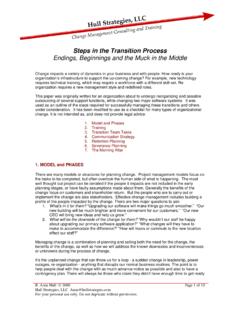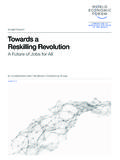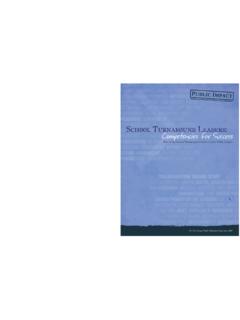Transcription of CHAPTER 5 EMOTIONAL MATURITY - …
1 CHAPTER 5 EMOTIONAL MATURITYI. LET'S BEGIN OUR STUDY BY DESCRIBING FIRST THE GENERAL CHARACTERISTICS OFEMOTIONAL SIGNS. 1. Being moody and depressed too much of the time. 2. Crying, pouting, losing temper and screaming over trivial matters. 3. Being late for appointments or allowing pleasures to get in the way of school assignments orother responsibilities. 4. Staying up too late at night when you should be getting your rest then sleeping in too latefor classes or work. 5. Staying in bed and calling in sick when you feel a littletiredor down, rather than discipliningyourself and putting your responsibilities first. 6. Getting mad if you aren't the center of attention and the most popular girl around.
2 Or, gettingirritated and insolent when you don't get your way. 7. Being demanding of other people and feeling that they should cater to your desires andneeds first. 8. Buying on impulse failing to consider the price, or whether you have the resources. 9. Failing to say "NO" to yourself giving in to your desires and wants without restraint disregarding the consequences. 10. Failing to reason out a situation or problem from beginning to end before making adecision acting first and thinking later. 11. Being easily influenced by others, instead of using your mind and making your own Daydreaming wasting your time in a world of fantasy and make believe instead ofthinking constructively.
3 13. Reacting emotionally and falling apart in an emergency. Failing to collect your wits and actwith a clearthinking head after the initial blow has passed. 14. Finding fault with everything and everybody, instead of trying to get along with people. Inother words, being generally negative and critical toward life. 15. Using the excuse that since you're a woman and therefore more EMOTIONAL (especially atcertain times of the month), you don't have to keep your emotions in tow. 16. Failing to take the blame or being too stubborn to admit it when you are wrong. 17. Feeling inadequate and easily discouraged particularly when associating with peers whoare self-assured, multitalented and successful.
4 18. Other general manifestations: a. Shyness loner-type b. Fearful of taking new steps c. Impetuous d. Self-indulgent e. Insensitive and inconsiderate f. Whines, complains and cries easily g. Overly concerned with your health h. Moody, changeable, unstable i. Easily offended j. Accusing k. Competitive win or else always have to be first MR. RICE S NOTEBOOKPage 31l. Argumentative and intolerant m. Impatient everything must be "now" never later n. Sarcastic and cynical o. Unable to be serious and level-headed p. Disorganized q. Unable to concentrate r. Irresponsible-and undependable II. WHAT EMOTION IS WHY YOU ACT AND REACT THE WAY YOU Emotion is the energy which makes the mind work it supplies the energy for survival.
5 1. Emotions physical and mental feelings are necessary for life and stimulate you tobehave in a certain way 2. In that sense, we are all EMOTIONAL people. B. There is a difference, however, between EMOTIONAL MATURITY and immaturity. 1. The difference lies in whether you let this energy (emotion) rule you to your own hurt andthe hurt of others, or whether you, through careful thought, put it to use constructively 2. You can't stop the energy that is emotion, but you can control and direct it into constructivechannels. C. How to control emotion. 1. Realize there are negative and positive ways to react to an impulse that comes into your Understand that you have been programmed from infancy to react the way you presently Realize, further, you can develop the ability to choose the way you want to react, rather thanallowing it to be automatic.
6 In other words, you can reprogram your behavior. 4. The following quote shows how this process works."Once the lever has been pulled, the water (emotion) rushes on inevitably. There are, how-ever, several channels in which the stream may be diverted, labeled: brave, fairly brave, cow-ardly, stupid, smart, immature; and the individual has the power to direct the stream, so thateven though he cannot stem the tide, he can cause it to flow in the channel of his choice."(Discovering Ourselves, Edward A. Strecker and Kenneth Appel.) III. CAUSES OF NEGATIVE RESPONSES OR EMOTIONAL IMMATURITY. A. There are basically three factors that contribute to EMOTIONAL immaturity. 1. involves how you were treated as a little girl, as well as what was expected of you.
7 Ifyou were treated as a fragile, timid doll, rather than as a child, and that kind of behaviorwas reinforced with approval, either verbal or nonverbal, you probably carried this patterninto adulthood. As a female, you undoubtedly were expected to cry easily, pout, thinksuperficially and selfishly. You also learned to tell "white lies'' to manipulate your parents,and men. This background probably contributed to your present make-up as an are imitators. Adults are your mirror, especially your parents or whatever the model of the person you identified with as a child your mother,schoolteacher, Hollywood star, etc., you will in some way become like that person. 3. Cognitive is the process by which you determined that certain behavior was or was not toyour advantage.
8 Crying, sulking or throwing tantrums to get your own way, became alifelong manipulative device. It's called "water power" or "the silent treatment." These arenegative techniques immature women have learned to use to get their desired results. NOTE: There are as many different techniques in childhood that go into creating thismanipulative phenomenon as there are individual families. These factors are meantonly to give a general basis. Too much pampering on one side of the pendulum andneglect on the other will net the same results. An overpampered child will learn toexpect too much from others without ever giving. Neglected children can grow up har- CHAPTER 5 Page 32boring such deep-seated anger and resentment that they become demanding andinconsiderate.
9 An over-pampered and protected child develops a self-indulgent attitudethat prevents him from coping with the frustrations and realities of his future life. On theother hand, a neglected child often has to learn to solve his own problems and candevelop attitudes of independence and "omnipotence." B. What you as a potential parent can do to teach your children EMOTIONAL MATURITY and self-control. 1. Teach your children at a very early age that they can't have their own way by pouting,crying or displaying other selfish EMOTIONAL starting out young will try temper tantrums to get what they want. 2. Don't allow them to be them they can't always be first or have their way. Help them learn to give in attimes and let others have a chance.
10 3. Teach your child allow a child to uncontrollably vent his anger instills in him an attitude of self-willwhich leads to overt rebellion and hostility later in life. 4. Teach your child to handle his emotions. Example from the parent can do a lot here. Emotions by themselves are not wrong;we all feel anger, hurt, love, lust, etc. What is wrong is failing to control them. You wanta child who can express his/her emotions, but you don't want a child who can't controlhis life. For example: The child who is angry when a friend wants one of his toys. Normallya child will strike out, hit, scream, bite or use violence to get his toy back. The child whois not taught from the beginning to control these emotions will very possibly become theadult who uses a knife or gun out of anger to get what he wants.







